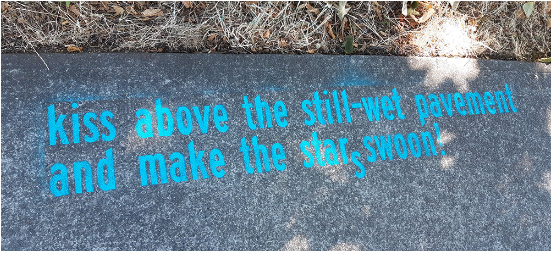Poet laureates have a unique job of melding the ethereal magical art of poetry with the very real struggle of the world around them, the one we all inhabit. By definition, a poet laureate is “a poet appointed to, or regarded unofficially as holding, an honorary representative position in a particular country, region, or group” (Oxford Dictionary). Reading that makes it sound like a hollow figurehead position. But poetry isn’t hollow, and poets have real tangible power. One can hear it when they speak, feel it in the way they live their lives.
That’s why the stuffy textbook definition of poet laureate isn’t the type we are focusing on today. Instead, we are going to stick closer to home. “Olympia’s next Poet Laureate will be called specifically to utilize the power of poetry and language to contribute insight, foster understanding and support healing around issues of equity and inclusion in our community,” says the City of Olympia website about its current search for the next Poet Laureate of Olympia. Saying there are issues of equity and inclusion in our community is a condensed way of saying Olympia has turned into a powder keg of opposing forces.
One side pushes so much hate it litters the streets and drowns out the message. The other side bleeds and dies in our neighborhoods to bring real change that doesn’t exclude any member of our community. The next poet laureate of Olympia will step onto that protest-ridden pandemic stage with the chance and choice to write and document the world as it is. City of Olympia also goes on to say, “These times and this opportunity conversely can offer the opportunity to rethink engagement.”
How can poetry lay the path to truth, equality, and inclusion? What does that look like in today’s Olympia? Former Olympia Poet Laureate Amy Solo offers, “The poet laureate has a chance to connect people on a very deep level.” He or she must come up with a thorough and actionable plan for how poetry can be implemented within the community and address the issues of diversity in not only the arts but the community.
Candidates interested in applying should be of the types that take poetry into themselves, embodying the rhyme, rhythm and mayhem. The application states any writer applying should “be a practicing poet, dedicated to producing poetry (in any form, genre or style) on a regular basis.” It’s less about where and how much a poet has published, but rather, is he or she committing to poetry on an ongoing basis in a professional manner? Past recipients had a smattering of published pieces before taking the role. Solo suggests potential applicants focus on plans for the role of poet laureate if they took the position. “I think with COVID-19 restrictions and our limitations on gatherings and workshops, something that a strong candidate will talk about is how to engage people online,” Solo suggests.
Whoever ends up being selected for the role will serve two years on a contract that ends December 31, 2022. Within those two years, the poet laureate will be expected to lead four instructional workshops, serve an active role in spring and fall Arts Walk, and further Olympia’s literary art scene and community. Essentially, the poet laureate must bring poetry to life within the streets, homes and minds of Olympia citizens while breaking down barriers of inequality within our community.
Of course, the poet laureate will be paid — $1,500 per year served, to total $3,000. On average, the role takes up about 160 hours across the two-year term. Serving as poet laureate for Olympia has some other perks as well: “[It] has opened up a lot of opportunities and connections both within the Washington arts community and amongst poet laureates from other cities,” Solo says. Solo recently released a book of poetry, Mothers, Lovers and Roadside Burials, inspired and informed by her time serving.
For all those poets out there who want to take the literary future of Olympia into their hands, the application process comes down to a résumé; five poetry samples (published or unpublished); a video recording of a reading or performance of one of the sample poems; and a 1,000-word proposal outlining and describing the events, workshops, and community engagement ideas the poet would like to implement. As stressed before, the 1,000-word proposal is a strong component of what leads to the poet being selected. Poems should be in their final form and show the author’s style, voice, and talent.
We are in that dark time before the dawn that feels devoid of light and hope. We’ve made progress, yes, but how far will progress go before it becomes our troubled history? The poet laureate of Olympia is the musical accompaniment to our rise or fall. Using the role and control of language, he or she can write our current and future moments along the wooden and concrete paths of our city, leaving traces of who we are, who we were and whom we dream of being.
Those interested in becoming Olympia’s next poet laureate can apply on the city’s website. Applications are due by February 17, 2021.


I find it very interesting that every article and newspaper except olympiatribune.com ignored the fact I applied for the position and the community started a petition which has hundreds of signatures and coments.
What a joke of a position. The only thing to report is the poet laureates have not been accomplished poets, authors, nor from Olympia.